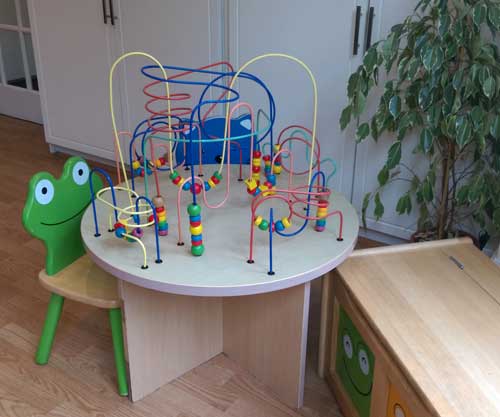BABY TEETH MAY BE TEMPORARY, but they’re certainly not ‘practice teeth’. Your child’s early dental care is so incredibly important!
Baby Teeth Are Essential
Your child’s dental care starts early with the baby teeth. Baby teeth (dentists call them deciduous teeth) are essential to your child’s future development. They perform many functions, including:
- Ensuring proper nutrition through chewing and eating
- Aiding in speech development
- Holding suitable space for permanent teeth to come in even and healthy
- Creating the foundations for good dental habits
Baby Teeth Last Longer Than You Think!
Your Child’s Dental Care Foundation Matters
We recommend the your child should come in as soon as they have teeth! Coming to the dentist from an early age gets your child used to the experience. They acclimatise to the smells and noises of the dental practice. It makes it a less frightening experience.
Six monthly check-ups help to catch any problems early and makes fixing problems easier for both your child and the dentist! We carry out regular fluoride applications to baby teeth which can help prevent tooth decay. So make sure your child doesn’t miss out this great preventative opportunity.
Good habits start early, so you can even just bring along your child when you come for your check-up so they get to see what the dentist is like. We’re not scary :-).
We’re Experienced With Children
We’ve had years of experience with dealing with child patients and we’re parents ourselves. Our approach starts in the waiting room not just in the dentist’s chair.
To make it a bit more fun for the children whilst you and your child sit in the waiting room we have children’s activity table and a toy-box full of toys and books for children of all ages.

Our Children’s Activity Table and Toy Box
- Tell-show-do
- Modelling
- Distraction
- Behaviour shaping and positive reinforcement
- Voice control
This is exactly as it sounds. Your dentist tells your child what is going to happen, then shows them and then does it. For instance: the dentists says to your child “I’m going took at your teeth with this mirror”. The dentist shows them the mirror and then will look in their mouth with the mirror. It sounds simple and it is but its a great way to communicate with a child so there aren’t any surprises.
This is where you child can watch you or a brother or sister having their check up (assuming they are well behaved :-)). Seeing someone else being seen by the dentist can reassure them about what’s going to happen.
Distracting children with music we have on or posters we have on the ceiling helps to take their attention away from the dental setting to some other situation.
We always like to be positive with child patients. We’ll give positive feedback and words of praise during treatment to encourage positive behaviour. At the end of their appointment we’ll give them a sticker or even a goodie bag.
No this isn’t how you control a smartphone or your car! Voice control means your dentist might raise the volume and/or harshness of tone when talking to a child who is behaving less than ideally.
What Parents Say About Us
Our dentist Nicola is fantastic, she is calm, patient and explains everything clearly to me and both of my children. They love going to the dentist. Thank you.
Patient Nicola B
If you want to know more we’ve got some great resources for parents to help you care for your children’s teeth and some fun activity sheets for the kids.
Any Questions?
We want to be your go-to resource whenever you have questions about your family’s dental care. We look forward to seeing you and your child soon!
Image by Flickr user little phat used under Creative Commons Attribution-ShareAlike 4.0 license. Image cropped and modified from original.


